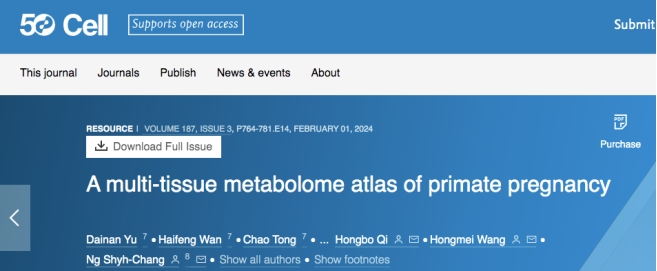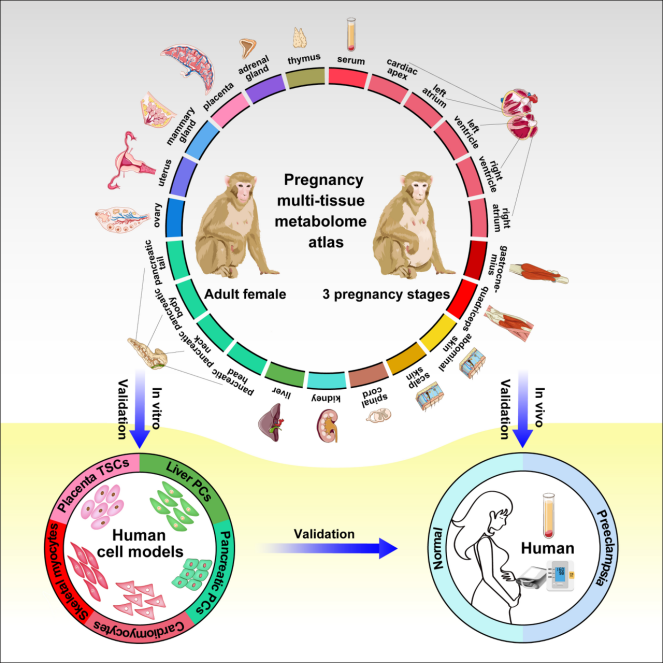On February 1, 2024, the Maternal-Fetal Medicine Research Team of Chongqing Medical University and the Institute of Zoology, Chinese Academy of Sciences jointly published a full-length research article titled "A multi-tissue metabolome atlas of primate pregnancy" in the journal Cell, which revealed the dynamic evolution of the multi-tissue metabolic network, metabolic pathway adaptations, and key adaptive metabolites during primate pregnancy.

Pregnancy is a vital yet challenging biological process for women. Statistics indicate that annually, over ten millions women in China undergo pregnancy. However, not all pregnant women are able to carry to term and give birth to healthy babies, as complications such as preeclampsia and gestational diabetes may occur during pregnancy. These diseases can cause multiple tissue and organ dysfunctions in pregnant women, which ultimately lead to adverse pregnancy outcomes and, in severe cases, even death of the pregnant woman or the fetus. Therefore, investigating the changes in multiple tissues and organs experienced by pregnant women during normal pregnancy is an important basis for revealing the mechanisms underlying gestational diseases and improving the health level of mothers and infants.

Using 23 tissues from non-pregnant cynomolgus monkeys and monkeys at early, mid and late pregnant , this study revealed the dynamic metabolic networks evolution in multiple tissues and organs during primate pregnancy, as well as the shared core differential metabolic pathways and metabolites using metabolomics techniques. The potentially important functions of differential metabolites were further verified using human placental trophoblast cells, pancreatic progenitor cells, liver progenitor cells, cardiomyocytes and muscle cells. This study also preliminarily verified the pathophysiological importance of the metabolomic data of cynomolgus monkeys in the human pregnant mother’s blood data and PE patients’ blood data, thus providing deeper insights into the metabolic homeostasis of primates during pregnancy.
Link to full article:https://doi.org/10.1016/j.cell.2023.11.043